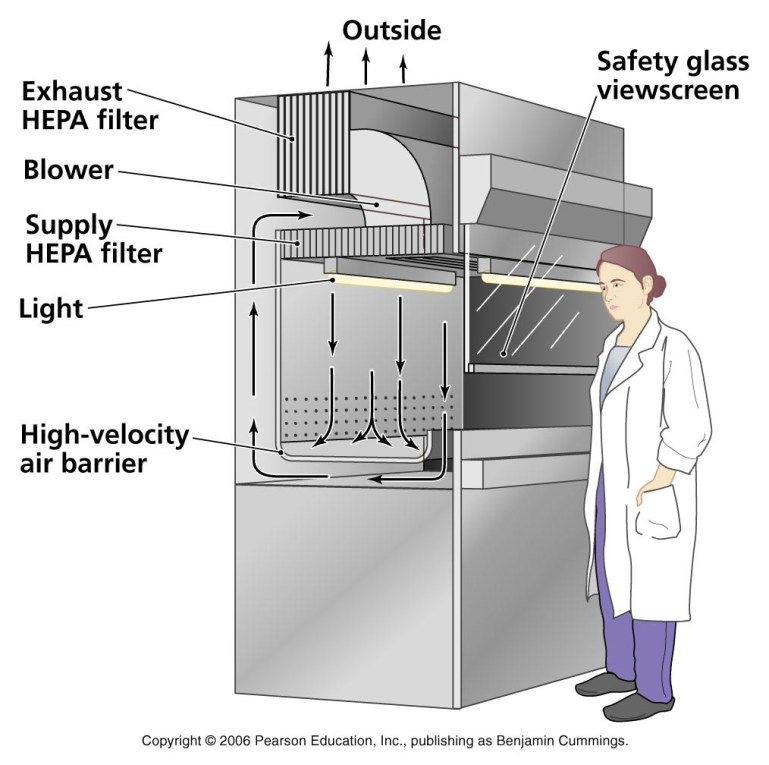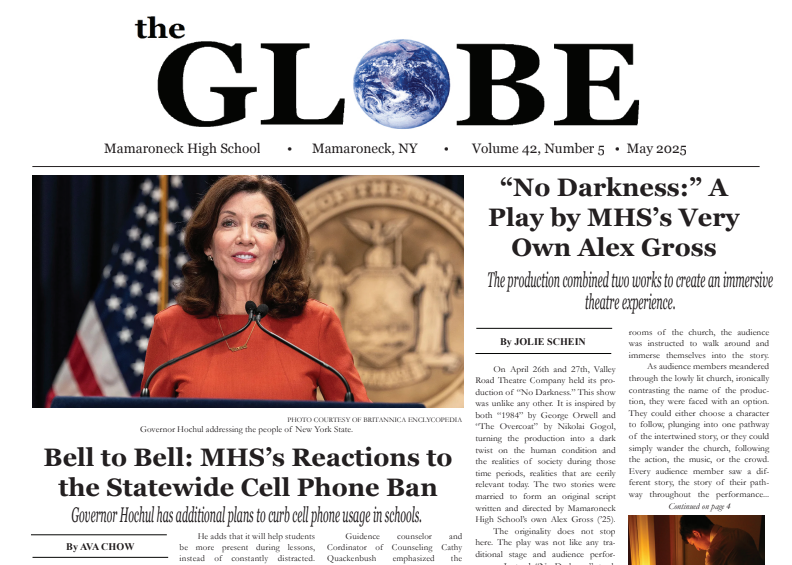School Board to Make Changes to Air Filtration Systems in All Schools
Breakdown of HEPA Filters and its components.
December 31, 2021
On Friday November 19, District Superintendent Dr. Robert Shaps announced that the Board of Education agreed to disable the current NeedlePoint Bipolar Ionization (NPBI) air filtration units across the school district. The systems were installed over the summer of 2020 as part of the district’s reopening plan, but have since been the subject of concern for a small group of parents who claim they have the potential to expose students to ozone.
When considering air filtration systems for fall of 2020 with the COVID-19 pandemic, the district initially moved from basic air filters to MERV 8 (Minimum Efficiency Reporting Value) air filters which attached to the districts HVAC (Heating, Ventilation, and Air Conditioning) systems. At the same time, the district consultant, Tim Wighard, Vice President of LAN associates, recommended that the Board of Education consider also installing NPBI systems to better handle air filtration and mitigate the spread of COVID-19 within classrooms.
The district website also points out how the two systems work together, stating that the NPBI system’s unique technology causes “small particles that would normally pass through a MERV-8 filter to cluster and form larger particles that now get captured by the MERV-8 filters.”
The systems have been installed across the district as one of many parts of an elaborate safety plan against COVID-19, since the reopening of schools in September 2020 and, in a district of about 5,400 students, teachers, and staff, only 137 have tested positive for the virus. In response to this, Dr. Shaps states how he and the rest of the administration “do believe that the transmission of COVID in schools is minimal.” He explained how, “over the last year and a half though…we have not found spread that resulted from in the schools, at best it’s been minimal. So we felt that given that, our schools are safe relative to the strategies that we put forward…and NPBI seemed to produce the results in our schools for a year and half.”
However, in late summer 2021, as all schools were preparing to move back to full in-person learning, a small group of parents began to raise concerns about the NPBI filters. They first made their case publicly at the September 14th Board of Education meeting, which took place the evening after the first day of school. Four parents of Mamaroneck students expressed their concerns to the board during the public comments section of the meeting, claiming that the board had been misled by Wighard to install systems that are not improving the health of students, but are in fact damaging it.
John Peterson-Robles, the first speaker and a father of students at MAS, opened by stating that “this board is asking great questions but you are not being given the correct answers.” His wife, Daneille Peterson-Robles, also spoke and read to the board comments from three experts in toxins that warned the board against using NPBI systems. She also cited a recent study that found that the specific iWave systems that use the NPBI technology installed by MUFSD into classrooms not only have the potential to emit ozone, but are inefficient in preventing COVID-19, thus shifting the conversation from NPBI more generally to the specific NPBI technology, engineered by Global Plasma Solutions (GPS), that are in Mamaroneck schools.
The comments and studies referenced during this comment period were later posted on a website created by the group of parents to share their information with the general public. The website’s “Get Informed” section features seven articles written by user “mufsddad” consisting primarily of quotes from these letters and studies. The articles were updated daily during the period of September 27 to October 2nd, and while the first article received little to no views, the last article has now reached over 80 views. The parents recommended that the systems be replaced with High Efficiency Particulate Air (HEPA) filter systems and suggested at the meeting that they were trying to raise money for these systems to be put in place of the NPBI systems. Since then, the district has received an anonymous donation for HEPA air filters to be installed in all four elementary schools.
On November 16, the Board released a study conducted by Quality Environmental Solutions and Technologies on the level of ozone and formaldehyde found in all six schools. The study found that “ozone levels detected did not exceed the UL 867 standard of 0.05 PPM for low ozone producing devices or the OSHA pel of 0.1 PPM.” It then concluded that “based upon the data, the NPBI units are not contributing Ozone or Formaldehyde to the indoor environment. These results — in addition to his conversations with staff members and other parents that reflected their support for the systems, and the widespread use of the NBPI systems in “most commercial buildings, thousands of types of indoor facilities [including] restaurants, hospitals, and so on” — led Dr. Shaps to recommend that the NPBI systems stay in place despite the concerns presented by the small group of parents.
In regard to his conversations with staff members and other parents about the systems, he commented how “the use of this technology is worldwide… there was a sense of ‘we’ve seemed to have a good course of protection in our schools for the last year and a half’. Why would we change [anything] now?’”
However, in late November, out of an abundance of caution, the Board of Education ultimately voted to turn off the NBPI systems. The systems will be disabled by the end of December or the first week of January, at the latest. In the elementary schools, the donated HEPA filters will be installed by mid January if all goes well with their delivery and there are no shipment delays. At the Hommocks, around 90% of MERV-13 filters will continue to run in all indoor areas, and at the High School MERV-8 filters will continue to run. There are currently no plans to install HEPA filters in the classrooms at either the Hommocks or the High School while Dr. Shaps and the Board work towards a long-term air filtration strategy.
Dr. Shaps assures the MUFSD community that he and the entire administration “continue to evaluate strategies…for the near-term and the long-term around air quality.” He “wants individuals coming into school to feel safe,” and will always work to ensure that.






